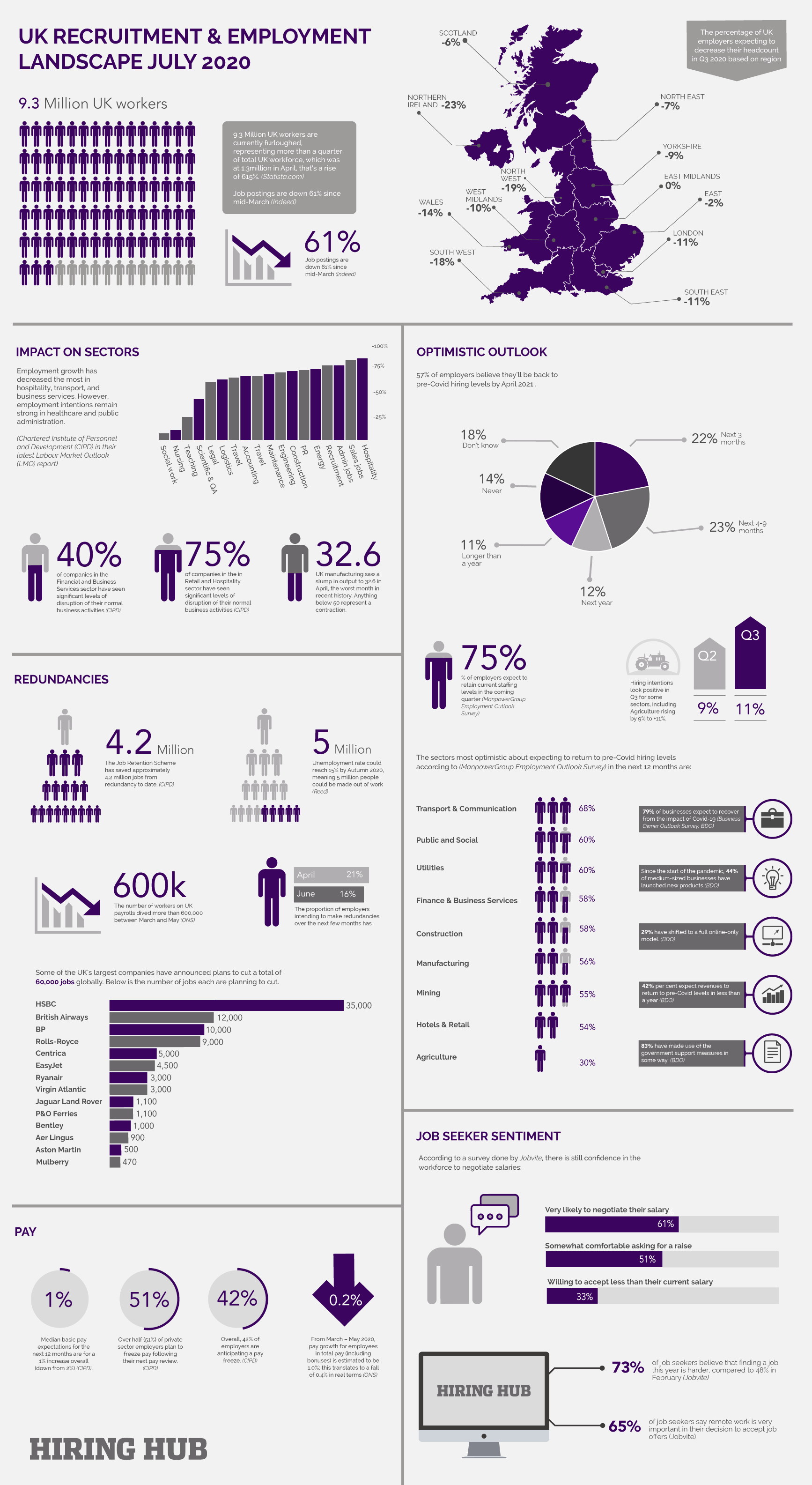How To Recruit Like Virgin
Google “Will Whitehorn” and you’ll often find him described as Sir Richard Branson’s “right-hand man”; the guy that help steer the Virgin brand...
Will the skills shortage trigger an increase in recruitment agency fees, and do they represent good value?
When you sell a car, or house, its value is not determined by you, it’s determined by the market; what similar cars or houses sell for and, therefore, what buyers are prepared to pay for them.
You may be able to influence the selling price marginally by keeping your asset in good condition, giving it a clean and making sure you’re on top of its maintenance, but the majority of its value is dictated by the ‘market’.
So the market says your car, in good condition, is worth £10,000. You’re realistic and keen to sell it reasonably quickly so, rather than chance it at £10,495, you advertise it at £9995 and wait for buyers to call. And they do.
A guy wants to view it on Saturday. He comes, checks the bodywork, takes it for a spin and offers you £6000 cash. You laugh. Partly to display your disbelief, but largely to disguise the fact that you feel insulted. Clearly, this guy thinks you’re an idiot.
Either he believes you don’t understand the value of what you have, or he thinks you look desperate and need the cash.
Alternatively, he simply can’t afford it and is just wasting your time.
Whatever the reason, you’re not going to sell him Beryl, your beloved BMW, for £4000 less than what you know she’s worth.
Fortunately, this stance is supported when, a few days later, you sell it to another buyer for £9800 – its value, minus a gesture of goodwill to let the new owner feel all warm a fuzzy because they got a deal.
You’re happy, and Beryl’s new owner is happy too.
So how does this relate to recruitment agency fees? Well, put simply, the exact same rules apply. If you want an Android Developer in London, that developer has a market value.
Let’s say that value is 20% of the developer’s starting salary. For ease, let’s say he earns £50,000 a year so he, like Beryl, is worth £10,000.
Now, if you’re a recruitment agency and you happen to have a really good Android Developer on your books, you’re going to want a cool ten grand for them.
Six won’t do. Nine might. But, ultimately, you know the value of the commodity you trade and you’ll work hard to realise it.
Why would you let your brilliant Android Developer go to a company for £6000 – a 12% placement fee – when you could place them at another company for £10,000 or thereabouts? You wouldn’t.
If you did, you’d be the idiot. Recruiters are many things, but they are not idiots.
They understand the value of their candidates, and the value that a good candidate can add to business.
CEOs understand the value of talent too. Ask any of them what makes their business successful and they’ll say, without hesitation, “its people.”
Yet that doesn’t always filter down to hiring managers who will fight to shave a few percentage points from a placement fee. Demotivating the very person they should be investing in to find them the BEST candidate.
Or those that pay a recruitment agency fee begrudgingly, with a deep sense of injustice.
Why? Fundamentally, I believe it’s because they feel that recruitment agencies don’t deserve the cheques they write.
Perhaps those outside of the recruitment industry think that Android Developers float into the recruitment consultant’s office on a unicorn one Tuesday afternoon, and the recruiter, with their fat-knot tie, badly gelled hair and sharkskin suit, places them in a role that Friday after a couple of quick phone calls before heading into town to buy a new Rolex.
They picture the brash recruiter in their office, dancing beneath a shower of £20 notes, working out what wheels to spec on the new Porsche they’re buying with this month’s bonus…
Well here’s the thing: they’ll spend it like any business does. Some will pay the fixed overheads (office rent, rates, insurance), some will go on paperclips, tea bags and toilet roll, a good chunk will go on payroll and taxes, and an equally lumpy wedge will go on marketing.
Because Android Developers don’t float into their office on unicorns. Ditto Finance Directors or Design Engineers. These guys are valuable because they’re hard to come by. And good recruitment agencies invest thousands of pounds, not to mention energy, into finding them.
It comes down to simple economics. Supply and demand.
Being an online recruitment marketplace, nowhere is this economic lesson played out more vividly than on Hiring Hub’s platform.
With hundreds of live vacancies dotted in across the UK at any one time, fees can vary greatly across different industry sectors and locations, where the market decides a candidate is worth more, or less.
To give a sense of empowerment and control, and to avoid lengthy and awkward negotiations with multiple recruitment agencies, we let the employer set their own placement fee. It’s a cash value rather than a percentage of salary.
We do this for a couple of reasons: 1) to encourage transparency; and 2) to avoid recruitment agencies pushing up their own fee by negotiating a better salary for their candidate.
We don’t believe they should they get paid more for doing no extra work.*
Most of the time, it works. But every now and again our Account Managers have this same, very straightforward ‘market value’ conversation with an employer that wants an Android Developer for £2000 and can’t understand why that isn’t realistic. It’s pretty frustrating.
When the guy down the road has set his fee at £8000, or £12,000, to whom do you think the recruitment consultant is going to submit their best candidate to? (Remember: they are many things, but they are not idiots.)
We cannot influence the market, and the value of a candidate within it, anymore than AutoTrader can influence the value of Beryl.
We, like AutoTrader, are completely neutral. There simply to connect companies quickly to a specialist recruitment agency that can fill their vacancy.
We don’t decide the fee, and, although we give the employer the power to set it themselves, the smart ones know that it’s the market, not them, dictating what they’ll pay. (So, admittedly, in that context it’s a relatively restricted freedom.)
Why else would they set the fee at £10,000? If you could pay 50p, you would. But you can’t. In the same way that you can’t get a Wagyu steak for a pound – its value is greater than that.
So if you baulk at the high cost of recruiting really good people – the very thing that you say creates the MOST VALUE for your business – it’s worth pausing for a moment to consider Beryl and the guy that offered £6000.
Are you serious about finding the best talent that will drive your business forward and willing to invest in it, at the market rate, to ensure you get the best?
The recruitment industry in the UK is worth £27 billion, that’s bigger than the total amount spent in Britain each year on cinema, video games, DVDs, chocolate, electronics and music. And it’s growing.
It is that big for the simple reason that recruiting is hard. And it’s getting harder. With a lack of skills in the UK across a number of sectors, and a narrow pipeline of fresh talent coming through from schools, colleges and universities, finding candidates with the right mix of skills and experience is increasingly difficult, which is pushing up recruitment fees, especially in sectors like IT, Finance and Engineering.
In these sectors, candidates are notoriously difficult to come by. Finding them in the first place, let alone attracting them to work for your organisation, is tough. Hence it can represent good value to outsource this challenging task to an expert.
Our online recruitment marketplace lets you see what talent is available via specialist recruitment agencies un UK quickly, and with very little hassle. Allowing employers to make a decision whether it’s worth paying a fee to hire a particular candidate, once they’ve seen the quality on offer via the agency market.
So using a marketplace, and recruitment agencies in general, makes sense. If it didn’t, so many billions of pounds would not be given to recruiters each year to spend on fat ties, wet-look gel and shiny suits.
Sorry – there’s no money left rent, rates, staff, marketing et al…
*This can make a considerable difference. On a vacancy with a £40k to £50k salary range, where the employer is offering a 20% placement fee, the difference between the candidate getting offered the job at the lower end of the range to the higher end is £2000. The recruitment consultant has done no additional work to earn this extra windfall, so we don’t believe it represents good value. This is the logic behind our fixed fee model.

Google “Will Whitehorn” and you’ll often find him described as Sir Richard Branson’s “right-hand man”; the guy that help steer the Virgin brand...

Ruth Penfold is Director of Talent Acquisition at Shazam. Read her view on the future of recruitment here.

Covid-19 hit recruitment and employment activity in the UK hard, but when we scoured the internet to determine just how hard, we found it difficult...